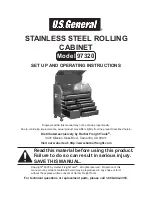
sharegroup$ (the group ID is fixed to "451" and other values cannot be specified)
For the character strings that can be specified when the local user authentication is configured, the
following requirements exist depending on the item.
•
Local usernames and local group names
-
The number of characters that can be specified is 1 to 32 characters.
-
The following types of characters can be used.
•
Alphanumeric characters and symbols ("-", "_", "$") (US-ASCII code)
•
The first character must be an alphanumeric character or an underscore ("_"). A dollar sign ("$") can
only be used for the last character. A local group name consisting of only numbers cannot be set.
-
In addition, local users and local groups using the same name cannot be created. The characters are
case-insensitive.
-
Because the following character strings are reserved words, they cannot be specified.
adm, audio, bin, cdrom, daemon, dbus, dialout, disk, floppy, ftp, games, gluster, halt, input, kmem,
ldap, lock, lp, mail, man, mem, nfsnobody, nobody, nscd, nslcd, ntp, operator, oprofile, polkitd, root,
rpc, rpcuser, shutdown, ssh_keys, sshd, sync, sys, systemd-journal, systemd-network, tape, tcpdump, tss,
tty, users, utempter, utmp, video, wheel
-
When a local user is used in Windows (CIFS) environments, the local username must be different from
the local group name. If the same name is used for the local user and the local group without case
sensitivity, access control may not be set correctly for Windows.
•
Password
-
The number of characters that can be specified is 8 to 32 characters.
-
The types of characters that can be used are alphanumeric characters and symbols (US-ASCII code).
4. NAS Functions
User Management
180
Design Guide
Содержание ETERNUS DX S5 Series
Страница 335: ......
















































